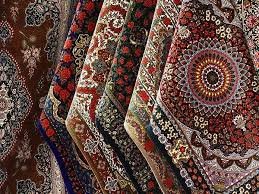Isfahan (IMNA) – "Negative effects of the currency inflation on the carpet market came through the increase of exchange rate and now we are witnessing the negative outcomes more than before," Saeed Asachi said.
"Silk is considered as the basic material required for handmade carpet manufacturing, the fact is that silk importing and its price is strongly affected by the exchange rate. Now this basic material has become increasingly scarce in addition to its being highly expensive. Clearly, the final rate of the carpet has also been more expensive than before by increasing the price of silk," he said.
"Silk is an imported good for which 26-percent tariff and free exchange is allocated; so, it is unprofitable for producers to buy it with a high price, on the other hand, costumers also don’t buy carpet due to its high price," Asachi noted.
"Such problems in the handmade carpet market of Isfahan is emerging in a situation that the increase of the exchange rate has turned to be a great potential to attract more foreign tourists in this city. Certainly, the handicrafts market like carpet will flourish with the arrival of the foreign tourists, but unfortunately, this matter has not been taken into consideration," he also said.


Your Comment